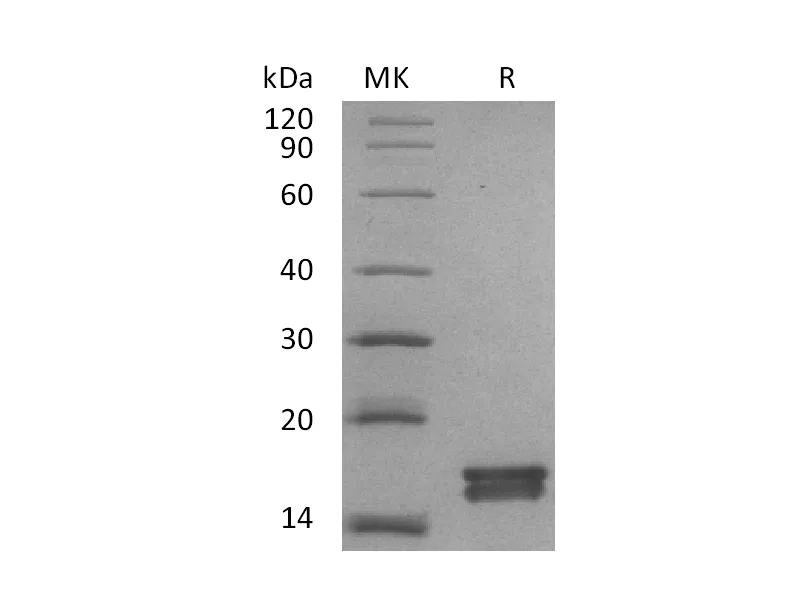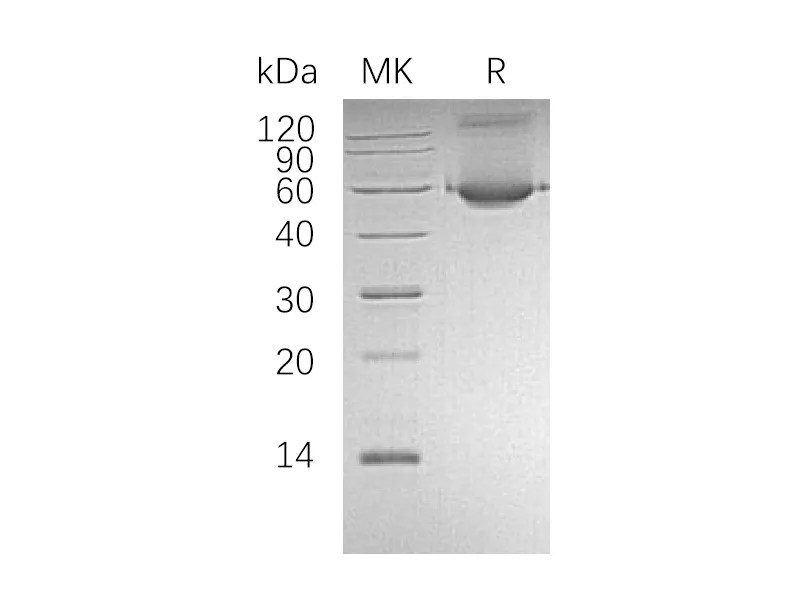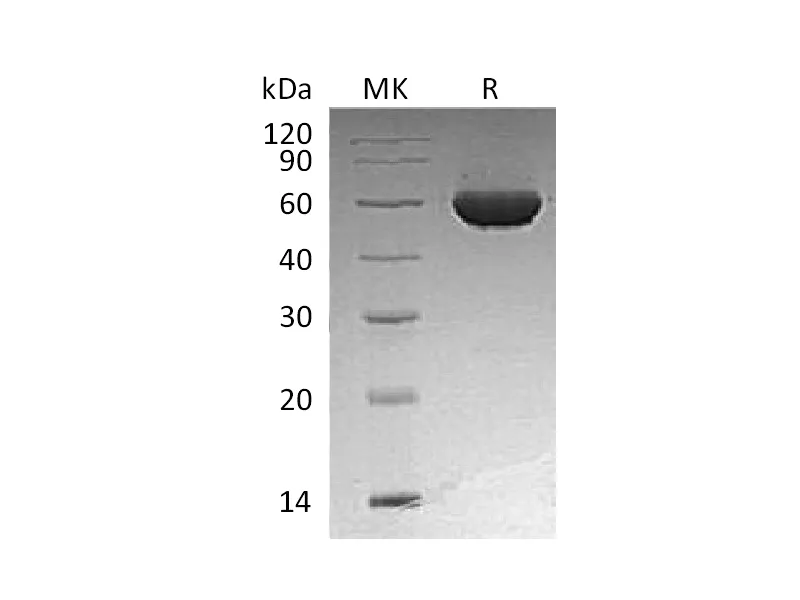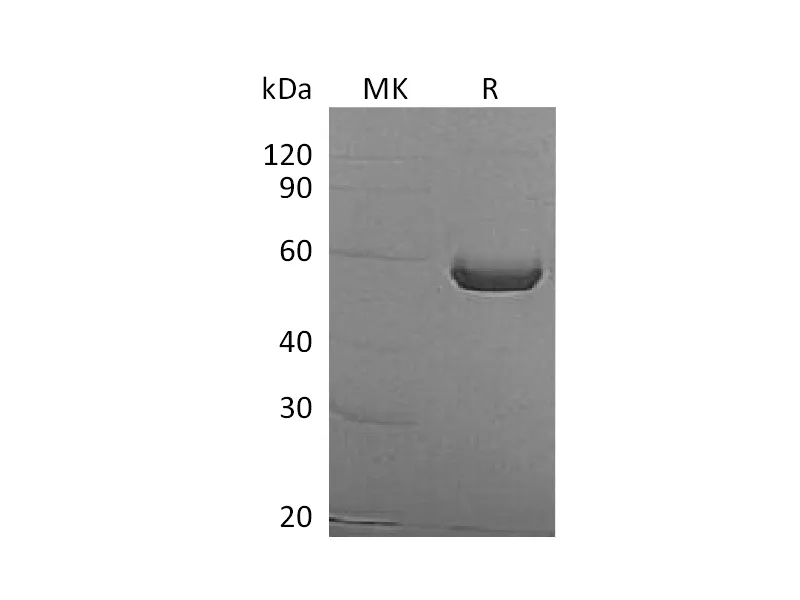Alternative Names
NCR3 Protein; Natural Cytotoxicity Triggering Receptor 3; Natural Cytotoxicity Triggering Receptor 3 Isoform CRA_c; NCR3
Background
Natural Cytotoxicity Triggering Receptor 3 (NCR3) along with NKp44 and NKp46 constitute a group of receptors termed “Natural Cytotoxicity Receptors”. They play a major role in triggering NK-mediated killing of most tumor cells lines. NKp30 is a type I transmembrane protein having a single extracellular V-like immunoglobulin domain. NKp30 is selectively expressed both in resting and activated human NK cells. In addition, NKp30 is also involved in NK-mediated induction of dendritic cell (DC) maturation. It has been demonstrated that NK cell activation signaling specifically induces lytic activity against several tumor cell types and synthesis of new NF-κB dependent proteins during the initiation of cytotoxicity.
Note
For Research Use Only , Not for Diagnostic Use.




